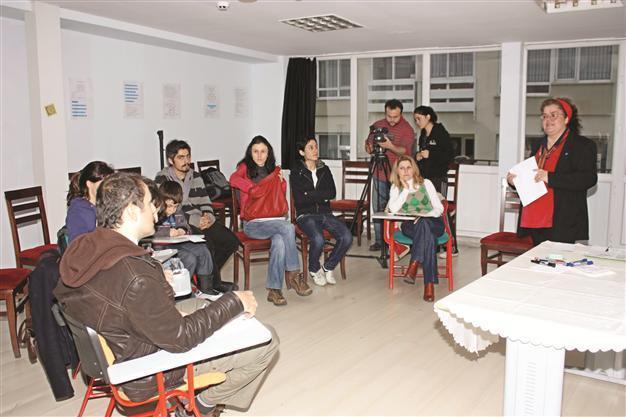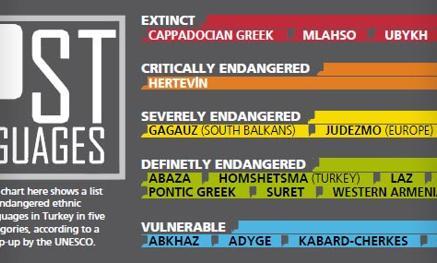Turkey losing its ethnic tongues, report shows
ISTANBUL - Hürriyet Daily News

Courses are not sufficient for citizens to learn their mother tongues and families also lag behind in teaching them to kids, a civil society organization says.
As the world celebrates International Mother Language Day, an updated UNESCO report shows that 15 out of 34 ethnic languages spoken in Turkey are in danger of dying out, while three others have become extinct already.The Anatolia Research and Culture Association (AKA-DER), a body that is active in promoting local cultures, held a demonstration in Istanbul yesterday to attract attention to this fact.
“As the people living on this soil, we have organized this rally to make our mother tongues, which are at risk of dying, live on, to say that we do exist and to call on everyone to lay a claim to their mother languages against policies to destroy them,” said Altan Açıkdilli about the event.
Açıkdilli, who is also among the pioneers of ethnic language courses, said nation-state policies were to blame for the loss of dozens of languages once spoken in the country.
“In the 1930s and 1940s we could not speak our languages due to ‘Speak in Turkish, Citizen’ campaigns backed by the state and one language-one culture policies,” he told the Hürriyet Daily News.
UNESCO ranks endangered local languages in five categories from “vulnerable” to “extinct.”
Ubykh, Masho and Cappadocian Greek have already become extinct, the body says. Hervetin is in critical danger.
 School education
School educationMother tongue education, a recent improvement at Turkish schools, should be secured well, Açıkdilli also said. “For mother tongue education to be successful we should immediately withdraw from racist, monotype policies,” he said.
Despite the efforts by the association, it is hard to learn mother tongues at schools, Açıkdilli said.
“A mother language is taught in the environment that a kid lives in, with lullabies and fairytales, but families do not teach mother languages to their children.”
















